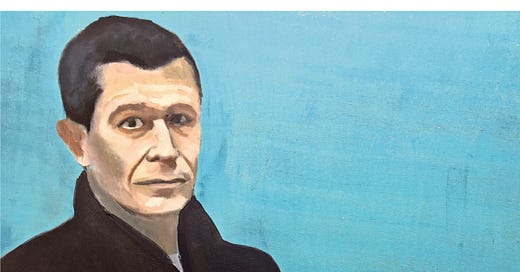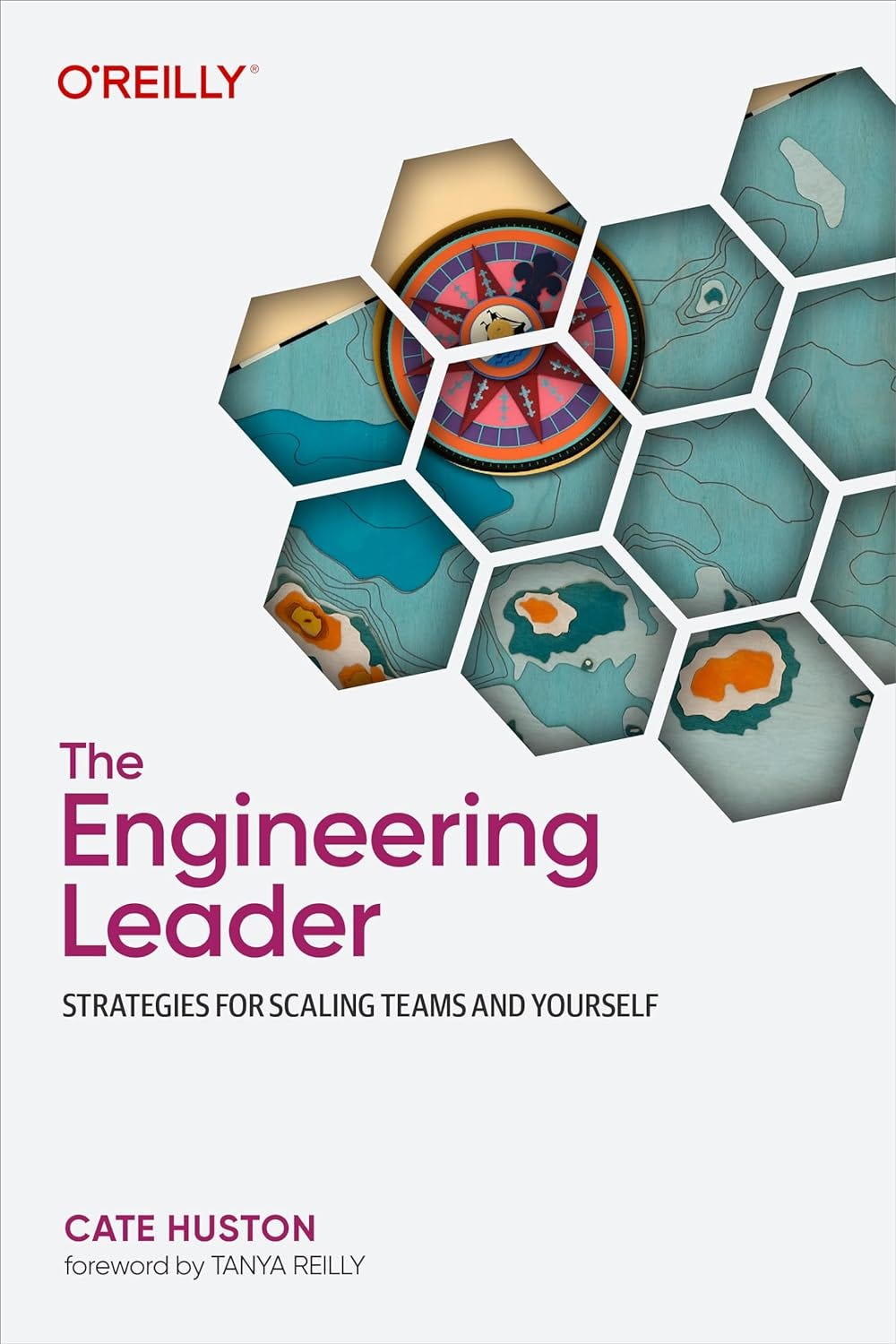📚 Books I read in September 2024: The Good, The Great and the Meh
Another monthly column reviewsing last month's books. This one with both a strong recommendation as well as a strong non-commendation.
Today, we're back with a review of the books I read last month.
As the summer holidays were technically over at the beginning of September, I had a bit less time to dedicate to this favorite activity of mine. That means I was back to the regular pace of three books per month.
Let's quickly review the books in the chronological order in which I finished them last month.
As usual, these posts contain affiliate links to the books, so you can purchase a copy if interested.
The first book was neither fiction nor nonfiction, or maybe it is both?
The jury is still out on that.
🟢 The Good: Il est avantageux d’avoir où aller by Emmanuel Carrère
Il est avantageux d’avoir où aller by Emmanuel Carrère
539 pages, First Published: February 11, 2016
I've been reading some Carrère in the past, namely his book on Philip K. Dick and l’Adversaire1, an intriguing book on a trues story of secrets and deception. I always found his writing style very enjoyable, so I picked up some of his books during our summer trip to France.
In essence, this book is a collection of articles and essays that he's published in various newspapers, magazines, and books. Said this way, it doesn't sound all that exciting.
What makes the difference, though, is the author's personality, his love and deep knowledge of literature, and his writing style. Carrère deploys a vast culture in literature and history that is only matched by his oversized ego. The good part is that he's perfectly aware of both traits.
Through the sequence of essays, his personality, his being human and imperfect, is always unapologetically present. He's there during his many trips to Russia, a country with which he has a profound relationship, when he finds himself at the forum in Davos, or while exploring the countryside in Romania.
In some articles, you will encounter the seeds of what will become entire books, such as l’Adversaire mentioned earlier.
All this makes it a book difficult to categorise under a traditional label.
If technically it's to be considered a nonfiction book, stylistically and conceptually, it presents many elements that are more typical of high literature and novelists. To me, that's definitely a plus. A book that leaves the beaten paths and is written by an author with deep knowledge of traditional literature makes for great and fresh reading.
If some people might be put off by the author's personality, I found that his self-awareness and his ability to be vulnerable in a book that will potentially be read by millions of people are something to appreciate.
He does that with the typical French intellectual tone that is often one inch away from sounding pretentious and pedantic. Still, he always manages to keep it within the boundaries of tolerance.
I don't believe the book is translated in English, but if you can read French I highly recommend it.
🤩 The Great: The Engineering Leader by Cate Huston
The Enginering Leader by Cate Houston
560 pages, First Published: April 16, 2024
This is the book I spent most time with during the month, and I loved every single minute of the journey. It has already inspired another article I published a couple of weeks back2, and in general, I can say it has been high-nutrient food for my brain.
It is so packed with information, reflections, personal experiences and references that it's not an easy feat to distill it down in a few paragraphs, and even it's subtitle Strategies for Scaling Teams and Yourself don't make it full justice. There is way more to it than that.
Let's try to break this down. From a content perspective the book is structured around 3 parts:
Part I: You
Part II: Team
Part III: Conclusions
They follow the logical thinking that as a leader, you first need to focus on your own efficacy before you can really expect good results with your team. Something I profoundly resonate with, and which is why I often cover topics of personal productivity and personal growth in my newsletter.
In the different sections Houston covers topics such as DRIing your career — great way to express the concept, energy management, hiring at scale or setting mission and strategy for a team. She manages to cover all aspects of the multi-faceted and frustratingly nuanced life of an engineering leader. I didn't find anything major missing from it, and that's a big plus.
Secondly, the amount of work and research that went into writing this book is apparent as you go through it. It's packed with case studies from a diverse set of realities, not only the author's experience. On top of that, the author references tons of other books, articles and researches that are always adding to the depth of the exploration. The Reading List in Appendix B almost felt like a personal gift for a book nerd. I was both happy to find in there a lot of books I've read already, and excited at all the books that are now joining my reading list.
Lastly, I found the author's style unique in a domain where we often default to dry, academic prose. She balances serious topics with fun remarks without getting off track. I mean, I'm really impressed with how she managed to get me thinking about hugging penguins in a chapter about processes and change management. Well done, Cate!
There is only one major pitfall with the book that made me almost throw it away. On multiple occasions, the author mentions her BFF, Eli, without ever introducing the acronym BFF. I kept thinking Eli might be some weird human incarnation of a Backend For Frontent3 until I looked up the acronym online and discovered it meant something completely different4. I genuinely hope this massive oversight will be fixed in the book's next edition.
Jokes aside, this book is excellent.
There are a handful of books that I tend to recommend almost by default to people in engineering leadership work. The Engineering Leader has made it to the list, and I predict it will stay there for a long time. It's also on the list of books that I'll revisit regularly as the need arises to focus on certain areas.
So, if you haven't done so yet, go get yourself a copy of the book. It really deserves its class in the engineering leadership discipline.
You might not care so much about my recommendation, but by now you surely want to know what penguins have to do with processes, don't you?
🔴 The Meh: 13 Things Mentally Strong People Don't Do by Amy Morin
13 Things Mentally Strong People Don't Do by Amy Morin
272 pages, First Published: December 23, 2014
I bought this book in 2016 after hearing the author interviewed on one of my favorite podcasts at the time. It somehow survived almost eight years on my bookshelf, completely ignored. As I was going through a bit of a down period at the end of the summer (more on that in a future article), I thought it might be as good a moment as any to finally pick it up.
Oh boy, was I wrong.
The book sounded interesting on paper, especially when I bought it in 2016. However, I was disappointed when I finally read what was printed on the paper.
First of all, I was disappointed by the layout, which wanted to look sophisticated but ended up being just annoying. That would have been a minor thing if it wasn't for the content, which I found surprisingly shallow.
Many of the concepts in the book were obvious and borderline common wisdom, yet they're presented as if they were a sudden revelation. I got bored very quickly, but I kept reading in the hope of finding depth and a source of reflection in the upcoming chapters. Well, I didn't.
You might wonder why I didn't simply stop reading the book halfway and move on to something else, and that's for two reasons.
I honestly have a hard time not finishing something that I started, especially books. I believe cultivating this discipline is worth more than the occasional waste of time with the content. Think about it like working out: you don't always have a great workout, but that's not an excuse to stop in the middle if it's not going well.
Reading is for me a way to learn, and you can learn from both positive and negative examples. I think at books such as The Engineering Leader mentioned earlier as the kind of book I would love to be able to write eventually, and I know I'm not even close to it. Conversely, after putting down The 13 Things Mentally Strong People Don't Do, I thought I could probably write a book like this if I just did the work. That doesn't mean I'm going to write a book I wouldn't recommend myself! Instead, it's a good reminder that different people are at different levels of knowledge in any field and that there seems to be space for more and less advanced books in the market.
That said, I really wouldn't recommend people to buy this book unless as their gateway drug into the realm of psychology and self help.
I'd be tempted to suggest a revised version of this book to include a 14th thing mentally strong people don't do: they don't need to read it.
If you found this valuable
If you found this valuable, here are other ways I can help you and your company:
Follow me on LinkedIn for regular posts on tech leadership throughout the week.
Join my Group Mentoring and Coaching community. Find out more in this article.
Contact me if you're interested in a Fractional CTO, Technical Advisor, or Board Member for your company.
Work with me 1:1 as your mentor and coach. I love working with driven and competent people in their specific situations and providing personalized guidance, insights, perspectives, and support.
An article where I discuss the difference between being Nice and Kind in leadership, check it out:
A pattern about building custom backend services for every client platform: learn more about it here.
If you're like me and struggling to figure out how a person can be a backend for a frontend, you might want to read the acronym's actual definition as it's used throughout the book.








